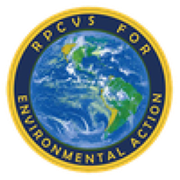The following story was posted on the Climate Changers website on March 20, 2019.
Imagine standing on the beach of a tropical island. You feel the warm sand between your toes. You smell the salty breeze and hear the swaying leaves of coconut trees. You see the turquoise water of the lagoon in front of you. It is beautiful, isn’t it? You then turn 180 degrees and see the open ocean only a hundred meters away. You look all around and observe that the land is only a few feet higher than the water. It is worrisome, isn’t it? You are on a coral atoll, and in this age of climate change and rising seas, it is a scary place to be.

Kiribati is a beautiful country, but its future is in jeopardy because of the impacts of climate change. The rising ocean, in particular, is making it difficult for people to get by. Many wells have become brackish, plants people depend on for staple foods—like breadfruit, coconuts and taro root—are producing less, the ocean is eroding the land, and the high tides are getting higher and flooding people’s homes more often. At some point in the future, the people of Kiribati will have to leave their islands and look for homes elsewhere; most of them will have nowhere to go.
There are many people around the world who are facing uncertain futures as the people of Kiribati are. Rising sea levels and other impacts of climate change are displacing people and will do so at an increasing rate if we do not slow down climate change. I have made it my mission to raise awareness of the people of Kiribati and others who are becoming climate change migrants. By giving presentations at public and private events, contacting elected officials, and using social media—Twitter and Facebook, especially— I am working to get people to know about climate change migrants and support action to mitigate climate change and facilitate the migration of people displaced by climate change. I believe that when more people understand how climate change is hurting other humans, more people will be ready to act.


